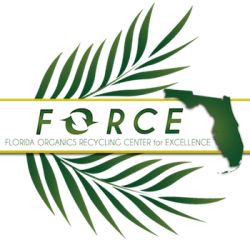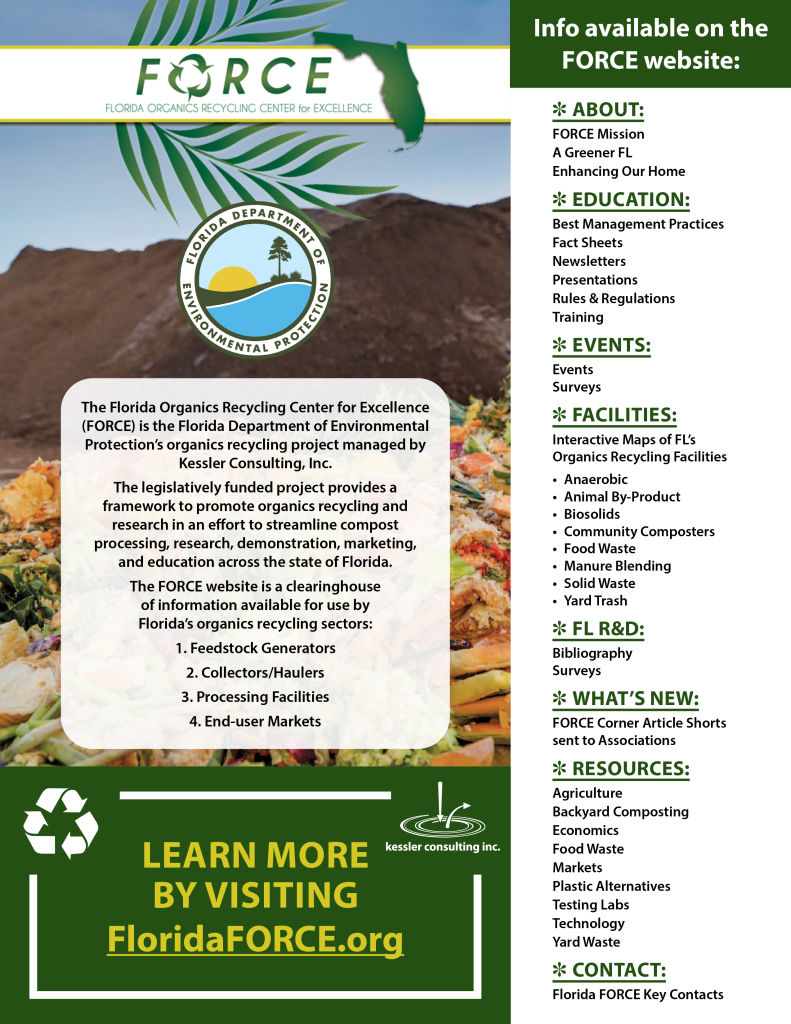Speakers from the industry and research entities will teach participants the principals of compost production and use: composting principles and biology, compost site safety, compost quality and testing, compost feedstock, composting rules and regulations, record keeping and compost utilization on specific crops. Then, during “hands-on” sessions, participants will apply the concepts they have learned by mixing feedstocks, sampling compost, and using field tests for compost quality.
The training will consist of three one-day training workshops at locations in South, Central and North Florida. One of the reasons for holding several programs is to allow participants to observe how compost is being made and used in their area. The participants will be viewing and interpreting laboratory results and bioassays as well as learning how to take the samples and set up the bioassays in their own operations.
All participants will receive a CD with copies of publications about compost, a list of resources for compost testing and equipment, a list of participants and ac copy of, “The On-Farm Compost Handbook.”
RESULTS

